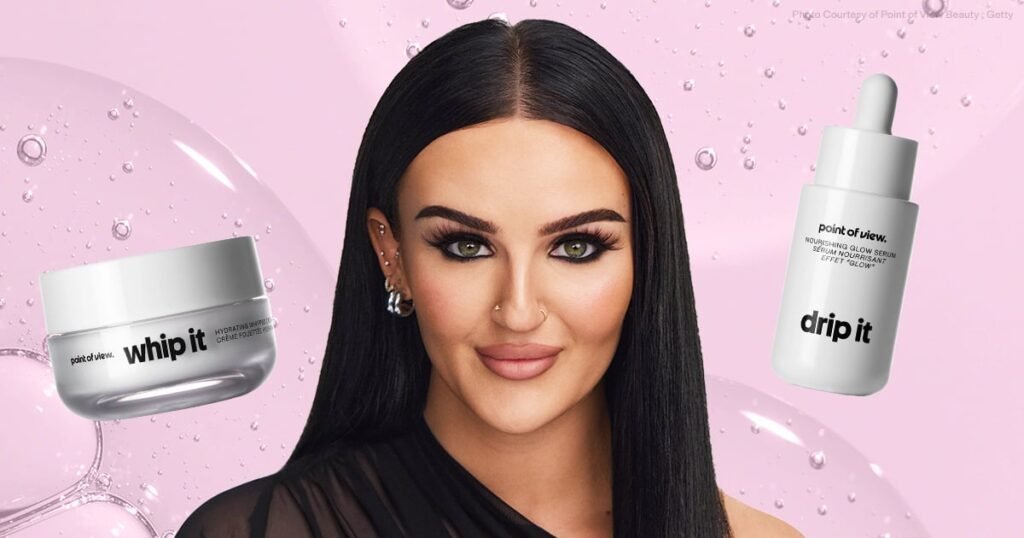
Are Influencer Brands the Next Frontier in Beauty? Insights on Rare Beauty, Kylie Cosmetics, Rhode, Fenty Beauty, and Haus Labs.
:upscale()/2025/04/14/860/n/1922153/tmp_XLm4zP_c5ec1785a9269cae_Main_PS25_04_Beauty_InfluencerBeauty_1456x1000.jpg)
:upscale()/2025/04/14/860/n/1922153/tmp_XLm4zP_c5ec1785a9269cae_Main_PS25_04_Beauty_InfluencerBeauty_1456x1000.jpg)
Rare Beauty, Kylie Cosmetics, Rhode, Fenty Beauty, Haus Labs—it’s apparent that launching a beauty brand has shifted from being a rare decision for celebrities to becoming a standard practice. (Given the high profit margins in such a timeless industry, the allure is understandable.) Recently, there has been a surge in beauty brands founded by influencers. Many sought-after brands in the beauty arena today originate from influencers and have achieved success comparable, if not superior, to that of celebrity-founded brands. Influencer-led labels such as Summer Fridays, Dezi Skin, One/Size, and Forver Mood are redefining marketing, product innovation, and consumer engagement in significant ways. This leads to an intriguing question: Do consumers find influencer brands more appealing than those launched by celebrities?
Social media celebrity and makeup artist Mikayla Nogueira, who has amassed nearly 9 million views and over 7,000 comments on her new beauty line’s announcement video for Point of View, cites relatability as a key factor. “People are often drawn to celebrities for aspirational reasons—they want to emulate them—while influencers create a connection through shared struggles and relatable experiences,” Nogueira explains.
Sivan Ayla, the brain behind + Lux Unfiltered, shares this sentiment. “When you’ve followed someone for years and invested in their lifestyle, connecting with them through their product or brand is a natural progression,” she states. “The trust and history I have with my audience has created a familiarity and relatability for my brand.”
:upscale()/2025/04/14/863/n/1922153/tmp_GGXlCw_26fc1700118cabd6_IG_PS25_04_Beauty_InfluencerBeauty_04.jpg)
:upscale()/2025/04/14/863/n/1922153/tmp_GGXlCw_26fc1700118cabd6_IG_PS25_04_Beauty_InfluencerBeauty_04.jpg)
While celebrities tend to possess immediate credibility derived from their fame, influencers earn trust through genuine connections with their followers. “Influencers share their lives more openly compared to celebrities, whose reputations are often managed meticulously,” notes Jeff Lee, CEO of Dibs Beauty, a brand co-founded with Courtney Shields. “The challenge of consistently speaking to an audience on camera and sharing unfiltered content can be daunting, even for the most skilled celebrities.”
Traditionally, beauty brands were the domain of formulators and chemists hidden behind the scenes. Nowadays, consumers not only desire, but expect, a connection with the person behind the brand. This is often more feasible for influencers focusing their energy on their brand than for celebrities with a multitude of commitments. “While some celebrities excel at engaging their communities, many are distanced from their audiences due to layers of management and immense fame,” Lee elaborates. Influencers like Nogueira, Ayla, and Shields maintain a direct engagement with their followers that fosters a genuine connection, appealing to modern beauty consumers.
Some argue that a knowledgeable influencer may possess greater insight into the industry. “Influencer brands carry a distinct advantage because they stem from individuals who are passionate about their niche, having likely tested countless products and understand the gaps in the market,” asserts Nogueira. “I have personally explored virtually every beauty product out there and knew exactly what I wanted in a brand. When you combine an individual’s obsession with their craft and their extensive experience, it can create something truly special.”
As beauty consumers become increasingly educated and discerning about their choices, establishing a brand—whether by celebrities or influencers—as ethical and trustworthy is paramount. For Ayla, this translates to conducting clinical research to demonstrate efficacy while formulating products from scratch and designing custom packaging. For Nogueira, this involves collaborating with leading product developers, laboratories, and chemists, testing products with dermatologists, and undertaking both clinical and consumer trials utilizing patented technologies.
Ultimately, a beauty brand’s success hinges on the care invested in its development, irrespective of the founder. “Every ounce of passion has gone into creating not only the Point of View products but also the brand’s positioning, community approach, design, and much more,” says Nogueira. In the end, involvement in product development and critical decision-making is vital for any brand founder to uphold authenticity.
:upscale()/2025/04/14/870/n/1922153/tmp_njhqiR_b7751671d8fc1798_IG_PS25_04_Beauty_InfluencerBeauty_02_1_.jpg)
:upscale()/2025/04/14/870/n/1922153/tmp_njhqiR_b7751671d8fc1798_IG_PS25_04_Beauty_InfluencerBeauty_02_1_.jpg)
Michelle Rostamian is a beauty and wellness contributor based in Los Angeles with over a decade of experience in the industry. She began her career in public relations, content writing, and social media management, representing beauty brands and industry professionals. Currently, she focuses on writing and editing topics related to makeup, beauty, skincare, and lifestyle.



